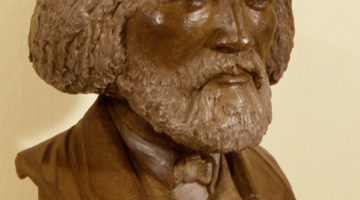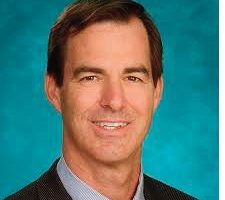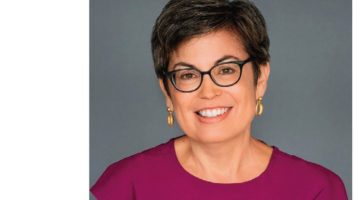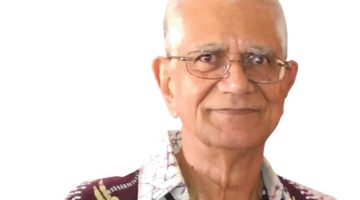Yusef Salaam, then 15, was wrongfully imprisoned in 1989. PHOTO COURTESY OF LAW.UPENN.EDU
It will remain an irony for the ages.
When Yusef Salaam, then 15, was wrongfully imprisoned in 1989, along with three other young African American men and one Latino – the “Central Park 5” –, in the rape of a European American woman in New York City, Donald Trump paid $85,000 for a fullpage statement in the New Your Times, New York Daily News, New York Post and New York Newsday bemoaning the “reckless and dangerously permissive atmosphere which allows criminals of every age to beat and rape a helpless woman…”
Trump headlined his statement: “Bring back the death penalty. Bring back our police,” It read, in part, “I want to hate these muggers and murderers. They should be forced to suffer and, when they kill, they should be executed for their crimes.” New York courts have struck down capital punishment.
Salaam, Antron McCray, Kevin Richardson, Raymond Santana and Korey Wise spent between seven and 13 years in prison. And then, in 1999, a serial rapist confessed to the crime and the “Exonerated 5,” as they later became known, were freed in 2002. They sued New York City for malicious prosecution, racial discrimination and emotional distress and the case was settled for $41 million. Their story is told in Ava DuVernay’s documentary series “When They See Us.”
Fast forward 34 years later, to this November 7. Salaam won election for a seat on the New York City Council to represent the Central Harlem district. He will help run the city at a time when Trump is facing four criminal indictments, two sets of which are before New York courts.
"Karma,” Salaam remarked.
Salaam said on Sunday on MSNBC’s “PoliticsNation,” hosted by the Rev, Al Sharpton, who was a leader in a drive to secure the release of the five young men, that he is not bitter towards Trump. He said he believes in the Biblical admonition that vengeance is a matter for the Lord – a reference to Deuteronomy 32:35 and Romans 12-19. Instead, he began building his life, trying to pay the rent and buy food for his family. His “lived experience,” he said, empowers him to be a voice for people in the halls of power, “the ambassador for our pain.” It is, he added, a source of inspiration for those who “are beginning to believe in themselves as they have not believed in themselves before because things were impossible but when they see me they know that it is always possible.”
Salaam’s “lived experience” now also includes community activism that led President Barak Obama to present him with the Lifetime Achievement Award. He wrote a book, “Better not Bitter,” and co-wrote another, “Finding the Air,” with Ibi Zoboi. And now he will sit in City Hall while Trump faces the real possibility of having to sit in jail.
On Saturday, Sharpton highlighted another case reflecting karma. Don L. Scott Jr. was elected the first African American Speaker of the House of Delegates of Virginia, a 400-year-old state where African Americans are about 20 percent of the population. He joins a legislative leadership that already includes several other African Americans and highlights his own lived experience which, like Salaam’s include a stint in prison. But, in his case, he was convicted of drug trafficking after federal agents found him with several thousand dollars in drug money. He has said he pleaded no-contest on the advice of counsel and expected leniency as a non-violent first-time offender. Instead the court sentenced him to 10 years in prison and he was released after seven and a half years.
Scott’s brush with the law came after Scott had risen from a background of poverty, being raised by a single mother as one of six siblings who never earned more than $13,000. He attended gifted schools, Texas A&M University, served in the U.S. Navy and obtained a law degree from Louisiana State University, which was when his run-in with he was arrested, due to a “bad decision” and a “terrible choice.”
That experience, Scott told The Washington Post, made him stronger and from it he came up with the phrase, “Pain into purpose,” similar to what Salaam did after his time behind bars. “I’ve been blessed to be able to overcome adversity, which gives me a different insight into what folks are going through and what they might need, to be able to empathize,” Scott told the Cardinal News.
Scott eventually passed the bar exam and became a lawyer and is now a partner with a law firm. A break came when he was among ex-felons whose civil rights then Republican Gov. Bob McDonnell restored., clearing the way for his entry into politics. A Democrat, he won election in 2019 to represent the 80th district. In four years, he soared to the top House position in a state where, as Sharpton noted, “Africans were brought as slaves, where American slavery was born.”
Mindful of that reality, Scott told The Post, “I know there were so many other African American leaders . . . who were probably smarter than me, that were probably as tenacious and persistent as me. But they never got this opportunity because of their color. I carry all those people with me. I think about those people every time I walk in the Capitol and I see some of the shrine of some folk who probably owned enslaved people. I’m conscious of those people . . . and what they had to go through and how their humanity was discounted in that very chamber.”
Sharpton also spotlighted Gabe Amo Jr. — Gabriel Felix Kofi Amo –– who was elected the first African American member of Congress from Rhode Island in the state’s 233 years. He represents the 1st Congressional District, where European Americans are 65 percent of the population. There is karma here also.
Amo’s father immigrated from Ghana, which was, for four centuries, the gateway through which around 12 million captured Africans were shipped as slaves, about two million dying at sea. The captives were kept in more than 30 dungeons, as Emanuela Campanella noted in a 2020 Global News story. The first ship arrived in 1619 at Point Comfort in Virginia, the same state where Scott and other African Americans now hold top elected positions.
Amo’s mother, Weady (sic) Socree, a nurse, came from Liberia, where some of the former enslaved were sent to start new lives. The American Colonization Society made a deal in 1821 with local West African leaders to establish a colony for them on a strip of land 36 miles long and three miles wide at Cape Mesurado. Starting in 1822, and for the next 40 years, more than 12,000 free-born and formerly enslaved Africans were sent there. In 1847, the colony, which came to be known as Liberia, declared independence from the American Colonization Society; its 38,250 square miles is now home to five million people.
The son of a father from a country whose citizens had been captured and enslaved and a mother from a country which became a haven for some of the formerly enslaved is now the leader of the House of Delegates of a state in the country to which captured Africans had been transported.
The electoral victories of Yusef Salaam in New York, Don Scott Jr. in Virginia and Gab Amo Jr. in Rhode Island are all the more significant coming at a time when Trump and his racism-tinged Make America Great Again (MAGA) movement dominating the Republican Party are vilifying the Democratic Party which has had solid support from African Americans at least since President Lyndon B. Johnson proclaimed his Great Society 60 years ago.
As Don Scott put it, at least in his case in Virginia, “It means that leadership and competence come in all packages. I think what the voters have said is that ‘we don’t care what the package looks like, we want competence.’” That is a nice thought for Thanksgiving.













No Comment